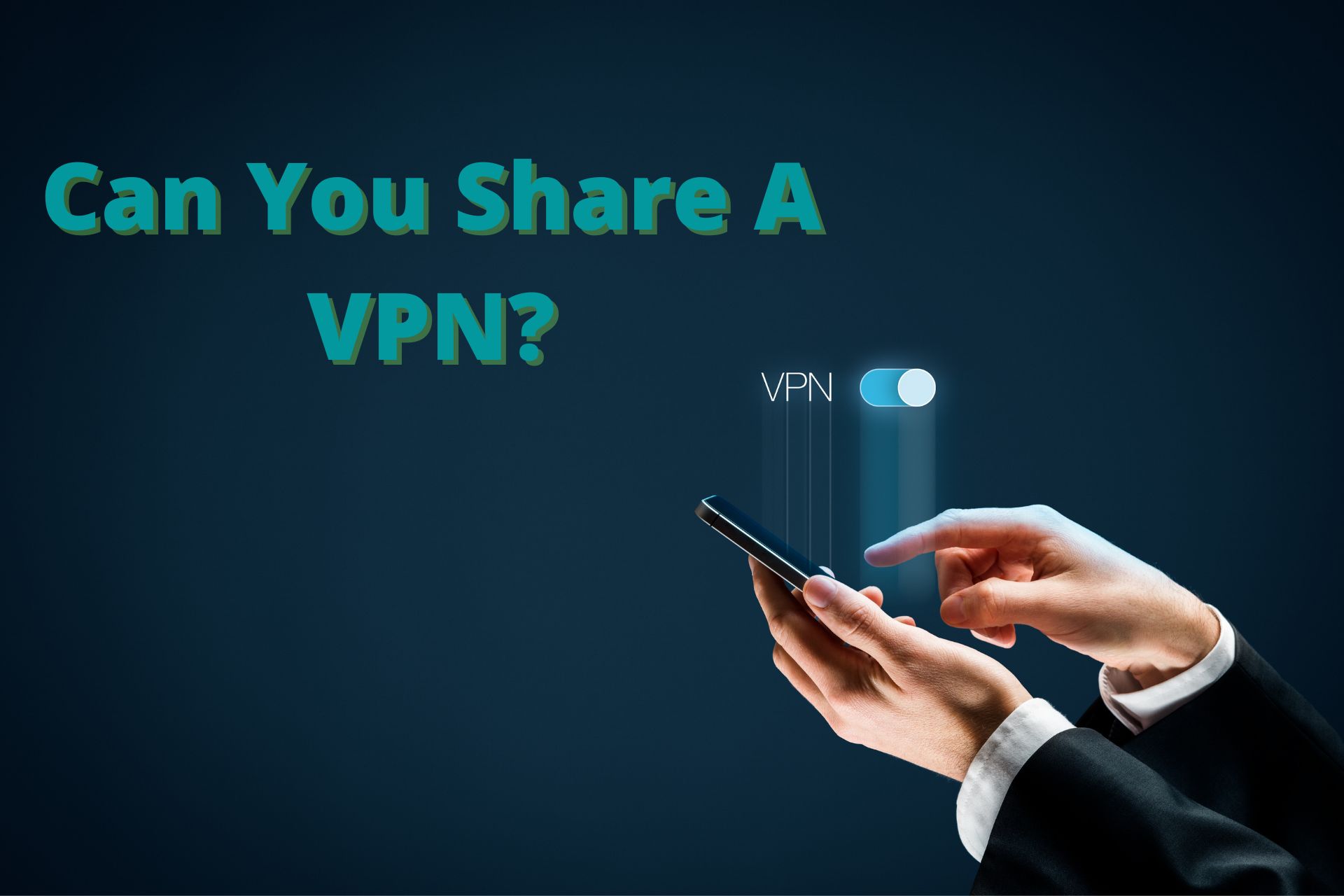Can You Share a VPN [With Family vs Friends] Is It Safe?
Review your VPN to be aware of the connection sharing options
- A VPN is a handy tool for securing your data when navigating online. But due to costs, you may need to share your VPN with others.
- Although many VPN providers will allow you to share your VPN with your family members (or other people), you must be cautious.
- Find out here if you can share your privacy software with other users or make it for everyday use for the entire household.
- There are certain risks that come with VPN sharing, so you're advised to verify all the regulations for your VPN provider.

A VPN is, without a doubt, one of the most valuable tools you can have under your belt if you’re constantly online.
Even if you’re an occasional web surfer it wouldn’t be such a bad idea to invest in a good VPN.
These times we live in, many want to get their hands on your private data for various reasons. Monitoring your every step, targeting you with ads, stealing your data, and even locking your files behind a ransom wall.
VPNs aren’t universal when it comes to protecting your devices against cyberattacks, but they’re a vital addition. Essentially, they route your data through private tunnels and encrypt it.
Therefore, even if someone were to intercept your Internet traffic, it would all be for nothing.
However, what happens if you have more than one device you’d like to use a VPN on? Do you have to purchase multiple licenses or can you use several devices on the same account?
Can VPN be used on multiple devices?
Generally speaking, the answer is yes. Every VPN provider allows you to share your account between multiple devices so that you won’t need to purchase additional subscription plans.
However, the maximum number of devices you can use on the same VPN account greatly depends on the provider. Some of them are more generous than others.
So, it’s a matter of who you choose to go with in the long run. As long as you keep the number of devices under the maximum number accepted by your service, things should be good.
Even if you accidentally exceed that number, you’ll most likely be asked to remove one of the previous devices to make room for the new one.
Quick Tip:
In order to share your VPN connection with family or other people in your social network, you should rely on flexible software.
PIA (Private Internet Access) is that one when it comes to VPN sharing because it supports 10 connections at once for any major platforms like Windows, macOS, Apple, or Android.

Private Internet Access
Share your VPN connection with your peers using this exhaustive privacy software.Can I share my VPN with my family and friends?
Many VPN providers are OK with this, especially ones who offer router VPN solutions.
Therefore, you don’t even need to use a VPN on each device. It’s enough to install the VPN on the router (or routers, depending on your setup) that your family members have access to.
More so, some VPN services even provide you with safety instructions on how to use VPN on multiple devices on the same account so that your account won’t be compromised.
Can I share my VPN with another household?
If your household accommodates more than just one member, you might want to protect your loved ones with a VPN. But what if you need to share it with a different household?
This can be possible as well depending on your VPN subscription. The majority of providers offer multiple or even unlimited connections using one account.
You may benefit from 5 simultaneous connections or more within one subscription, thus it’s possible to share it with different people.
In any case, you should be aware of the VPN terms of use before sharing it with numerous households to avoid account restrictions.
Can you share a VPN with someone else?
You probably considered purchasing a VPN subscription plan and splitting the bill with others, who are not necessarily strangers, but they’re not family members, either.
While that’s a great way to cut costs, since you can split the bill with a bunch of people, it’s worth mentioning that this practice is kind of frowned upon.
Actually, scratch that. VPN providers have nothing against splitting plans with your peers, otherwise, they wouldn’t allow multiple devices on the same account (and so many of them, too).
However, what they do have something against is denying responsibility. So you should know that the person who makes the purchase must claim 100% responsibility for everything that happens on the account.
Thus, if you purchase a plan, split it with your friends, and one of your peers decides to go ahead and engage in unlawful behavior, you’d be responsible.
Is it safe to use someone else’s VPN account?
Yes, in certain conditions.
If you’re using a zero-logging VPN that doesn’t access your data, you should be fine (regarding authorities and whatnot).
However, most VPN providers passively monitor some of the traffic and can terminate your account if they detect something fishy on your account, even if it’s not you who did it.
Don’t believe us? Try reading the Privacy Policy and Terms of Use documentation for once. You’ll find it all there.
How many devices can I use with one VPN account?
As we’ve briefly mentioned above, that greatly depends on the generosity of the provider.
Below you can find some of the best VPNs for multiple devices, including the number of maximum devices you can use on the same account.
| Product Name | Maximum devices per account | Company Name |
|---|---|---|
| Private Internet Access | 10 | Kape Technologies |
| CyberGhost VPN | 7 | Kape Technologies |
| BullGuard VPN | 6 | BullGuard |
| NordVPN | 6 | Tefincom & Co., S.A. |
| Surfshark VPN | Unlimited | Surfshark LTD |
| VyprVPN | 5 | Golden Frog GmbH |
| IPVanish | 10 | StackPath, LLC |
| ExpressVPN | 5 | Express VPN International Ltd. |
| ProtonVPN | 5 | Proton Technologies AG |
| Hide.Me VPN | 10 | eVenture Ltd. |
| Private VPN | 6 | Privat Kommunikation Sverige AB |
| Pure VPN | 10 | GZ Systems Limited |
You can share a VPN account, but be cautious about it
So, can you share a VPN account safely? We believe so, yes, but you should be extra cautious about it, especially if you don’t plan on sharing it exclusively with your family members.
While some VPN providers will even encourage you to share your VPN account, most of them advise against it and hold you solely responsible for whatever happens on your account.
We strongly advise you to choose a VPN service and give its privacy policy and terms of service documentation a thorough read before attempting to share your account.
You might even end up with your account suspended if you’re not careful enough.
Finally, you have as well our best VPNs that can protect your online privacy. Plus, visit our VPN Hub to discover more guides and tools to help you protect your online identity.



